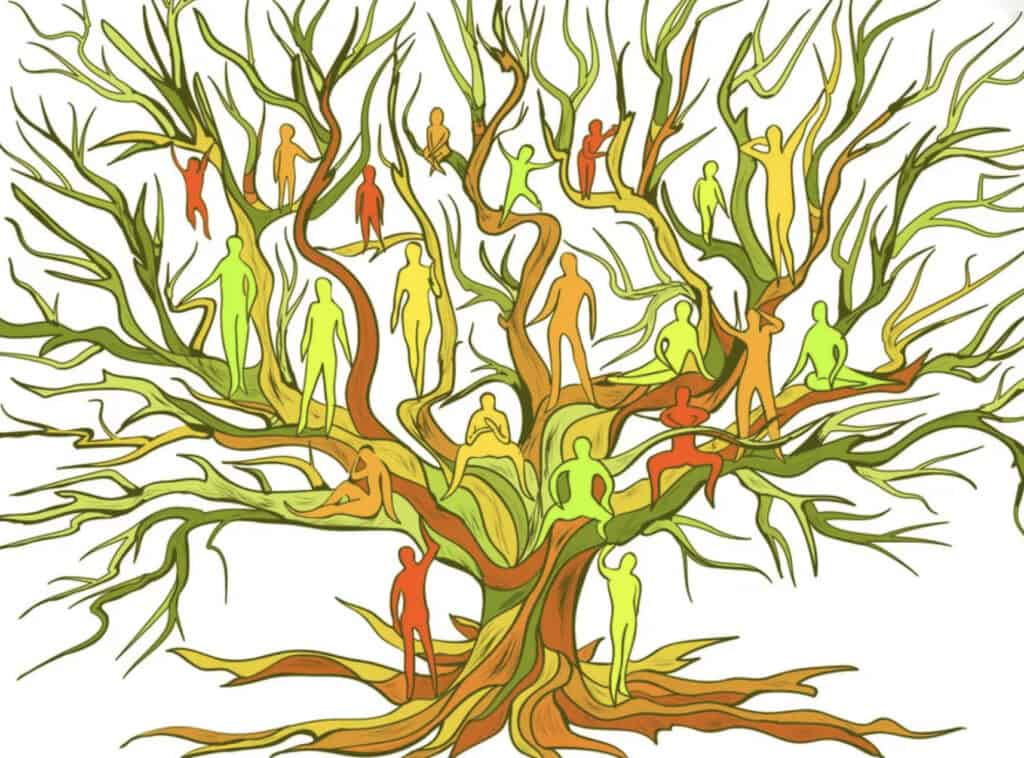Inheritance law in Bangladesh
In Bangladesh, inheritance law concerns are a contentious matter. It is impossible to address exhaustively the law of succession upon death. The law of intestate succession is unquestionably the most intricate aspect of the law that is also relevant to everyone’s existence.
Generally, after the death of a man or woman, many questions arise regarding who has the right to the deceased’s property and how much each individual will receive.
After the demise of a man or woman, it is first necessary to pay for his or her funeral, repay his or her entire debt, and carry out his or her will using the property he or she left behind. After the disposal of these items, the offspring and relatives of the deceased have the right to inherit the remaining property. The laws that govern the distribution of a deceased person’s remaining property to their successors are known as the law of succession.
Religion and Inheritance law in Bangladesh
In Bangladesh, a person’s religion governs inheritance. Consequently, if the deceased person was an adherent of Islam, his property will be distributed in accordance with Islamic law of Succession. If, however, the deceased person was a follower of Hinduism or Buddhism, his property will be distributed in accordance with Hindu law. The Succession Act of 1925 is primarily applicable to individuals who do not practice Islam, Hinduism, or Buddhism.
Even if the deceased person had his domicile in another country at the time of his death, the succession of his immovable property in Bangladesh is governed by Bangladesh’s Inheritance Law.
In Bangladesh, Hanafi law is primarily used to divide the property of Muslims who adhere to Islam. According to Hanafi law, there are three (3) primary categories of heirs:
Shareholders, dividend recipients, and distant relatives:
Sharers are those who, according to the Al Quran, are entitled to a predetermined portion of the property. Sharers are the chief heir among the three descendants. Principal sharers who cannot be deported under any circumstances are the father, mother, daughter, husband, and wife. Other sharers include the grandfather, grandmother, uterine brother, uterine sister, consanguine sister, and the daughter of the son.
After distributing the claims to the sharers, if there is any remaining share, it will be distributed to the residuary. All reliquaries have a male connection to the deceased. All distant relatives are those who are related by blood.
If there are neither heirs nor reliquaries, the inheritance will be divided among those distant relatives who have the right to inherit it. The scope of this section is too broad; consequently, the government cannot claim any property, even if there is no heir.
In the event of the death of any son or daughter of the propositus prior to the opening of succession, the children of such son or daughter, if any, living at the opening of succession shall receive a share equivalent to the share that such son or daughter would have received if alive.
In film, it is a common occurrence for a father to disinherit his son or daughter from his property. In contrast, according to Muhammadan inheritance law, a beneficiary cannot renounce his right to inherit. Notably, a Muslim cannot dispose of more than one-third of his complete estate through a will.

Requirements for Writing a Will
Age Requirement:
To make a will, the person must be of legal age. Most states consider 18 to be the legal age of consent.
The goal of forming a will is for an individual to decide to enact a permanent transfer of property upon their death at the time of signing.
Reasonable estate distribution:
Proper property distribution among relatives is essential.
Mental Stability:
The writer must be of sound mind, which means he must be aware that he is signing a will that will have consequences.
A will should be freely constructed if it is to be voluntary. If one is forced to do so, it is not legal.
Signed and Witnessed:
For legal confirmation, a will must be signed by the writer and witnesses. The number of witnesses will be determined by regional laws.
In Bangladesh, how do you make a will?
Wills in Bangladesh are controlled by a combination of legislative and religious norms. Wills in Bangladesh are governed by the Succession Act of 1925 in general. In contrast, Muslim Personal Laws on this topic are more prevalent in this country due to the flexibility of criteria and the majority’s desire. Executing a will, or Wassiyyah, is one of four compulsory ceremonies performed for the deceased in Islam.
Only one-third of a Muslim’s possessions may be bequeathed. The intent of the testator must be clear in order for the wasiyyah to be carried out after his death.
A will can only be revoked if the testator produces a second will, according to the 1925 Act and Muslim personal law.
Both sets of regulations that govern wills are required for their lawful execution. There are many similarities and distinctions between the two. The legislation is in place and in force, albeit with unspecified limitations.
Wills in accordance with the Succession Act and Muslim Law
Wills legislation in Bangladesh is a synthesis of legislative and religious principles. Wills in Bangladesh are mostly governed by the Succession Act 1925. However, because to the leniency of standards and the majority’s inclination, Muslim Personal Laws on this topic are more widespread in this country. In Islam, one of the four required obligations performed for the departed is the execution of a will, or (Wassiyyah).

A Muslim may leave only one-third of his fortune in his will. The testator’s intention must be evident that the wasiyyah will be executed after his death.
A will, according to section 2(h) of the Succession Act 1925, is “the legal declaration of a testator’s intention with respect to his property which he desires to be carried into effect after his death.” A Muslim who has anything to bequeath owes it on himself to not let two nights pass without making a will.
Section 59 of the Act states that any person of sound mind who is not a minor may dispose of his property by will. In Bangladesh, a person reaches adulthood at the age of eighteen, according to Section 3 of the Majority Act 1875. As a result, everyone above the age of eighteen is eligible to form a will under the Succession Act. However, an adult who has reached the age of fifteen is also permitted to make a will under Islamic law.
According to Section 63 of the Succession Act, a will must be in writing, signed by the testator, and witnessed by at least two witnesses. However, according to Muslim personal law, a will can be either oral or written, and if written, it does not need to be signed, and if signed, it does not need to be attested. However, as stated in the preceding section, the need of two witnesses is the same in Muslim law.
The only proper documentation of the executor’s appointment is a probate, which is obtained to certify the legality of the will. The court granting probate of a will establishes it and makes all acts of executor lawful under section 227 of the 1925 Act. To make the will effective, the receiver must file a probate complaint in District Judge Court. However, there are no such obligations under Islamic law.
According to both the 1925 Act and Muslim personal law, revocation of a will is only conceivable if the testator creates another will.
Both sets of rules for wills operate together to ensure their legal execution. There are numerous similarities and differences between the two. Both the law and its application are in agreement, with some restrictions that have yet to be discovered.
Property Transfer through Last Will and Testament in Bangladesh
The transfer of the dead to the living has two aspects: Testamentary Succession (i) and Intestate Succession (ii).
Under Muslim law, testamentary successions under marz-al-maut are (a) Will and (b) Gift. This is governed by Islamic testamentary succession law. A will’s key requirements are that it takes effect only after the testator’s death, that no donation exceeds one-third of the estate, and that no bequest be made to an heir. A Will can be verbal in Muslim law. anything is not necessary to put anything to writing. No registration is required. A Will’s content can be changed at any time by its author.
Gifting during Marz-al-Maut fulfills all of the essential requirements of intra-vivos gifting, including:
(1) A donation offer,
(2) The donee’s acceptance, and
(3) Immediate possession transfer. It is also subject to all of the limitations mentioned in will law, including: (1) it takes effect after the donor’s death, (2) it cannot be given to an heir, and (3) it cannot exceed one-third of the property. According to Hindu law, the District Judge must grant probate for the will’s execution after the testator’s death.
How to Write a Will in Hindu Law
Any adult may dispose of his property by will in Hindu law, provided he does not breach his wife’s or anybody else’s lawful claim to maintenance. A Hindu can dispose of his separate or independently acquired property via will. The Succession Act of 1925 now governs Hindu wills. According to Section 63 of the Succession Act of 1925, every Hindu will must be in writing, signed by the testator, and witnessed by at least two witnesses.
Inherited succession
In Bangladesh, the Hanafi law of inheritance governs Muslim intestate succession, whilst the Dayabhaga School of Inheritance governs Hindu intestate succession. There are three types of heirs in Hanafi inheritance law:
a. Sharers, who have a predetermined part of the inheritance;
b. residuaries, who do not take a prescribed part but succeed to the balance after the sharers’ claims are satisfied; and c. remote Kindred, who are all blood relations who are neither sharers nor residuaries.
Under Hindu law, the Dayabhaga Law of Inheritance acknowledges three types of heirs: (a) Sapindas, (b) Sakulyas, and (c) Samonodakas.
Making a will in accordance with the Succession Act:
A will must be in writing, signed by the testator, and witnessed by at least two others. However, under Muslim personal law, a will can be either oral or written, and a written will does not need to be signed or witnessed if it is signed. However, in Muslim law, the requirement for two witnesses is the same as in the preceding section.
Probate is obtained to validate the validity of the will and is the only valid proof of the executor’s appointment. All executor actions become legal after a judge approves probate for a will. In order for the will to take effect, the executor must file a probate action with the District Judge Court. However, such requirements do not exist under Islamic law.
As a result, there are several types of real property transfers that can be made in a will. Some transfers are between living people, while others are between deceased people and living people. A single administrative entity to manage all forms of real estate transfers is desperately needed. Furthermore, a complete law governing the transfer of all sorts of immovable property should be enacted. The 1882 Transfer of Property Act is deficient.

It makes no mention of the transition from the dead to the living. Currently, transferees’ rights are typically limited. As a result, there should be explicit legal safeguards protecting the transferee’s or property purchaser’s rights and interests. Because modern society and circumstances are becoming more complex, it is preferred that all transactions of immovable property be documented and recorded.
Difficulties with will and Succession
It’s difficult to think of one’s own death. Nonetheless, one should plan their estate ahead of time so that their affairs are in order in the unfortunate event of their death.
The last thing anyone wants to do at this time is add to their family’s stress. Property in Bangladesh has value after the contract is signed and the initial payment is made; hence, even before the property is transferred, one will have an asset to consider for estate planning.
It is prudent to review Will on a regular basis to verify that it still reflects wishes, especially in light of family developments such as births, deaths, or weddings.
While making a will in Bangladesh, the organization provides legal services for the preparation of a Wasiotnama, commonly known as a Bangladeshi Will. Your assets in Bangladesh, such as real estate, bank accounts, and automobiles, will be listed in the papers. When a foreigner dies in Bangladesh or a Bangladeshi dies in another country, a government official will normally request a copy of the deceased’s Will from the deceased’s family or attorney.
A variety of things can happen to property if one is unaware of their legal rights in Bangladesh. If certain precautions are not taken from the start, the entire procedure can become extremely complicated and often rather costly. Risk minimization and investment protection are critical components of any real estate transaction.
This is especially important when acquiring a home outside of your home jurisdiction, where communication can be a major barrier to attaining your goals. The majority of the risk is mitigated by a legitimate will. It is always good to seek professional advice from a trustworthy specialist who looks out for your best interests and knows your needs.
What is the ramifications of an unregistered will?
Once a Will has been registered, it is held in the safe possession of the Registrar and cannot be tampered with, destroyed, mutilated, or stolen. The failure to register a Will, on the other hand, does not mean that it is invalid.
Are you intending to make a will in Bangladesh?
Make a will in Bangladesh with the help of Tahmidur Rahman Remura: TRW: The Law Firm in Bangladesh:
The legal team of Tahmidur Rahman, The Law Firm in Bangladesh: TRW, The Law Firm in Bangladesh are highly experienced in providing all kinds of services related in terms of making a will or heba releated issueshttps://tahmidurrahman.com/heba-will-gift-document-registration-in-bangladesh/ Bangladesh. For queries or legal assistance, please reach us at:
E-mail: info@trfirm.com
Phone: +8801847220062 or +8801779127165
Address: House 410, Road 29, Mohakhali DOHS



